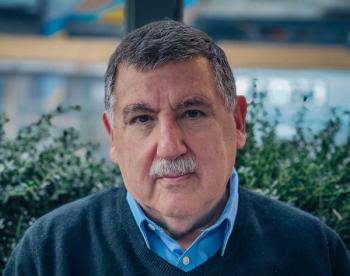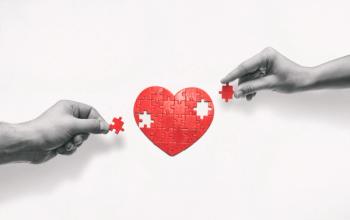
- Psychiatric Times Vol 18 No 6
- Volume 18
- Issue 6
The Former Secret Life of an Elvis Impersonator
Stephen R. Shuchter, M.D., professor of clinical psychiatry and associate director of residency training at University of California, San Diego, spends his "down" time performing as Elvis and other rock 'n' roll legends. In these efforts, he expresses his creativity and brings delight to those he entertains. Lessons from each "career" have helped his success in the other.
During a performance at a summer concert in a park in San Diego last year, I realized that I had been "doing" Elvis since 1957 -- a year longer than he did himself. I have been a singer since childhood, and in 1985, I formed the first of several iterations of "Dr. Elvis and the Immortals," a '50s and '60s oldies band. In addition to the music of the era performed by four other musicians/vocalists, the group has had a continuing stream of immortal guest performers whose personae and music I have stolen. I have been transformed into Buddy Holly, Jerry Lee Lewis, Elvis Presley, Mick Jagger, Chuck Berry, Little Richard, Fats Domino, Ray Charles and Roy Orbison -- complete with outfits, wigs and makeup. Over the years we have played in many venues, including private parties, nightclubs, parks, the San Diego Sports Arena, the Playboy Mansion and the American Psychiatric Association annual meeting. In the early years, we played almost weekly. Now, the band may play a few times a year, supplemented by an occasional appearance of The King at a wedding.
You might think psychiatry and rock 'n' roll seem irreconcilable. Not so. First of all, one must consider that all the wisdom of the Western world is contained in rock 'n' roll. Not convinced? Consider these gems, for instance: "When you find your sweetheart in the arms of your friend, that's when your heartaches begin," or "You can't always get what you want, but if you try sometime, you might find you'll get what you need," or "War (good God, y'all) what is it good for? Absolutely nothing."
Besides the value of rock 'n' roll for understanding human nature, life and psychiatry, my training and experience in psychiatry has helped me enormously in my rock 'n' roll career. It has helped me walk into the audience and interview unsuspecting and vulnerable people in an impromptu and maximally embarrassing fashion. Psychiatry has helped me differentiate the fan having a good time listening to "Heartbreak Hotel" from those with displaced de Clerambault's syndrome or erotomania bestowing gifts upon The King. When Little Richard prances and cavorts through the crowd in his sequined butterfly blouse flirting with some of the x-chromosomally challenged, my training in violence prevention has taught me to avoid those men holding a beer bottle upside down in their fist. Psychodynamic understanding adds meaning to the appearance of a banana that has fallen down the leg of Mick Jagger's black leather pants. Sensitivity to the moods of others has helped me assess when Roy Orbison's sorrow and tearfulness might be excessive, as well as who might be offended when Ray Charles sings facing the wrong way or falls off the stage, or when "The Killer" Jerry Lee Lewis (after a mistaken appearance by Jerry Lewis yelling "Lady") refuses to perform until the specifications of his contract are met (a minimum of three underage girls in the audience).
Why risk life and limb (and reputation)? Regression in the service of the ego is fun. There is nothing like losing oneself in a performance, especially a constantly changing series of roles that demand such an admixture of musical knowledge and talent (vocal when good, comedy when not), physicality, suspension of reality, narcissism, sadism, and exhibitionism. In other words, fun.
The aesthetics of music speak (or sing) for themselves. Music has the capacity to transform our spirits and souls. It works for me as a recipient and, combined with a sense of mastery, as a producer. In this form, it has allowed me the great opportunity and pleasure to entertain others; to see the laughter, joy or poignancy in their faces; to bring a different and more immediate meaning to the lives of others than I do in my daily work with patients or students. God forbid an academic or a physician should live out their inclination to be in the spotlight and feed off their audience. Although few of my patients (but many colleagues and trainees) have witnessed my performances, none have been confused, and some have felt the experience added to our relationship. Through it all, these experiences have enhanced my life, giving me the opportunity to embrace life more fully and to participate in history even as I imitate it.
My greatest pleasures in performing have been associated with my children. After years of causing them untold embarrassment, they have all come to enjoy attending my shows, and they often bring friends along. Two of my children arranged for me to perform mock wedding ceremonies at their high school dance for Las Vegas Night and even performed with me as backup on a couple of numbers. Recently, my youngest child, a film major at University of California at Berkeley, completed a film project called "My Daddy Is Elvis."
A final vignette: at the 1999 APA annual meeting in Washington, D.C., at Constitution Hall, I had the good fortune to participate (with two very talented local vocalists-psychiatrists) in a performance of the "Three Tenors." After solos by "Jos Carreras" and "Plcido Domingo," I (as "Luciano Pavarotti") was straining to complete "La Donna Mobile" when I suddenly "collapsed" and was dragged off by one leg by the stage hand to the apologies of Carreras and Domingo who proceeded to sing "O Solo Mio" as a reluctant and guilt-ridden duo. Midway through their performance, I arrived in my gold lam fringed jumpsuit to establish a dueling version of "It's Now or Never," ending in a reconciliation of the Three Tenors in its finale.
Had enough?
Articles in this issue
over 24 years ago
Bioterrorism Looms Are We Prepared?over 24 years ago
Carveouts: Specialization or Discrimination?over 24 years ago
Boundary Violations and the Fall From Edenover 24 years ago
New Research Improves ECT Outcomesover 24 years ago
Decreasing Suicide in Schizophreniaover 24 years ago
Treating the Patient as a Whole Personover 24 years ago
Creative Media in PsychotherapyNewsletter
Receive trusted psychiatric news, expert analysis, and clinical insights — subscribe today to support your practice and your patients.







